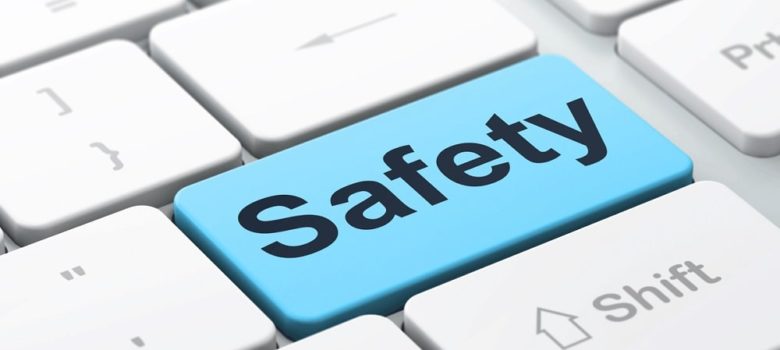
- Apr. 29
- Richard Parker
The Complete Guide to Online Safety Freelancers
If you’re a freelancer, you live online – a place that can come with it’s own risks. Here’s how to protect yourself from hackers, malware, and security vulnerabilities.
What Makes You Vulnerable?
Your Devices
As a freelancer, you rely on your devices to keep on top of your projects, contact your boss and colleagues, and of course, manage your personal life. Your mobile and computer store huge amounts of personal, professional, and sensitive data. If they fall into the wrong hands, get hacked, or infected with malware both you and your clients risk data leaks.
Public Wi-Fi Networks
Public wi-fi networks are the bread and butter of freelancers’ connectivity. But public wi-fi networks are inherently unsafe. All a hacker needs is the shared wi-fi password to view your browsing history, intercept your communication, or even access your device.
Your Cloud Storage
We all rely on cloud storage to keep our personal information secure, store our photos, and keep our project details safe. But an unsecured cloud database can leave all this information exposed.
Insecure Mobile Apps
Not all apps are created equal. When you install an app you’re exposing your device to possible malware threats or unsecured databases. Excessive app permissions can also expose your information to unneccessary leaks.
Unsafe Webpages
Freelancing naturally comes with its share of internet research and browsing. But unencrypted webpages can leave your connection exposed or even expose you to malware and viruses.
Unsecured Financial Transactions
If you freelance, you probably get paid online via PayPal, Crypto, or into your bank account via wire transfer. It’s wise to ensure these transactions are as secure as possible. Never access your bank account from exposed public wi-fi or other unprotected connections.
Ransomware and Malware
Malware and ransomware are malicious software that infect your computer or mobile device. Malware comes in many forms but usually is designed to steal data, steal money, or hijack your device. Ransomware is particularly sinister. It infects your device and locks your information until payment is made to decrypt it.
Phishing Emails
One of the most common risks online are phishing emails. Those emails are masqueraded as emails from companies or people you interact with everyday, and try to get you to type your password. Once you do, the hacker gets complete access to your account.
How Can You Protect Yourself?
Use a VPN
A VPN should be the secret weapon in any freelancer’s arsenal. It protects your privacy by encrypting your traffic and hides your identity by changing your IP address. That means you can use public wi-fi networks without fear of hacking or snooping. If you’re a digital nomad you can also use a VPN to change your displayed location to access online services locked to a different region. That means you can log in to your bank account from anywhere in the world or watch streaming services like Netflix without being blocked by geo-filters.
You can install a VPN app on all your devices. Make sure you set it to launch on start-up so all your communication and transactions are protected. And here’s a real hack for you: there are free solutions for the savvy user. The most important features to look for in a VPN are speed, strong encryption, lots of location choices, and cross-platform applications.
Take Care of Tour Devices
Be kind to your devices. They are your most important tool as a freelancer. You should always update your devices as soon as possible. Security flaws and bugs are fixed with each new update. Keeping your device updated is one of the best ways to protect it from hackers, unsafe applications, viruses, and malware.
Bulk up Your Encryption
If you use Google Drive or Dropbox, your files are automatically encrypted while resting (unused) and in transit. However, if you’re leery about Google’s model (free services in exchange for advertising data) an additional encryption tool is a good idea. If you store very sensitive information you should also use additional encryption. After all, Dropbox has experienced data leaks before and there is no such as thing as a 100% secure system. Just one vulnerability can expose all your stored files online.
If your cloud’s system is breached, no-one will be able to read your files if they have been encrypted separately prior to upload. It’s just that simple. With one small extra step, you can be sure your private information stays private on the cloud.
Luckily there a range of secure encryption applications you can use. They are called client-side encryption tools and they encrypt your files on your own system first before you send them to the cloud. We love the open source and free (on Windows, Max and Linux) tool Cryptomator.
Use a Password Manager
If you freelance, you probably maintain a mind-boggling number of accounts and passwords. To keep hackers out and contain a security breach if it happens, you need a complex password or passphrase unique to each one of your accounts.
No-one has that good a memory. A password manager is an app and a browser extension that generates, stores, and inputs your complex password with just one click. You can activate it with a master password (even better: a passphrase) so your accounts, apps, and devices stay sealed shut if you lose your device.
Get App Savvy
There are two main issues with third-party apps. First of all, the list of permissions that you must accept upon installation can come with some privacy issues. Any data collected by the app will be stored on the company’s database so you should be certain that the list of permissions is appropriate for the functionality. For example, there is no good reason why a photo editing app would need access to your geolocation data and IP address.
Secondly, malware can hide in apps that are either poorly designed or run with ad support. Try to avoid free or ad-supported malware and always read reviews before you download an app.
Use an Antivirus
An antivirus is a no brainer if you want to protect yourself from malware, ransomware, spyware, and other viruses. Many VPNs offer built-in malware blockers and offer combo subscription that you may want to check out.



